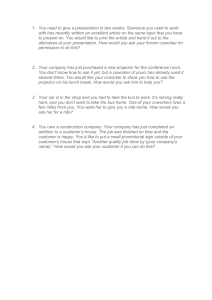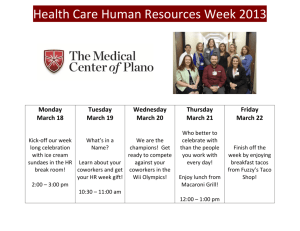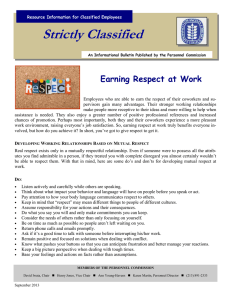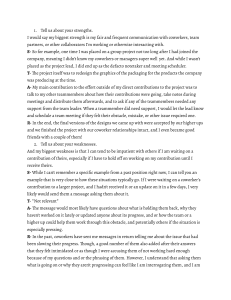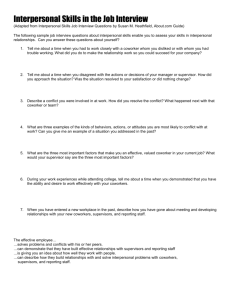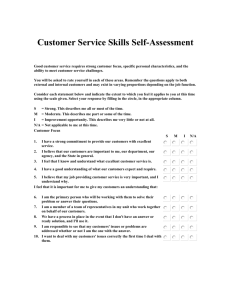Strictly Classified Getting Along with Coworkers
advertisement
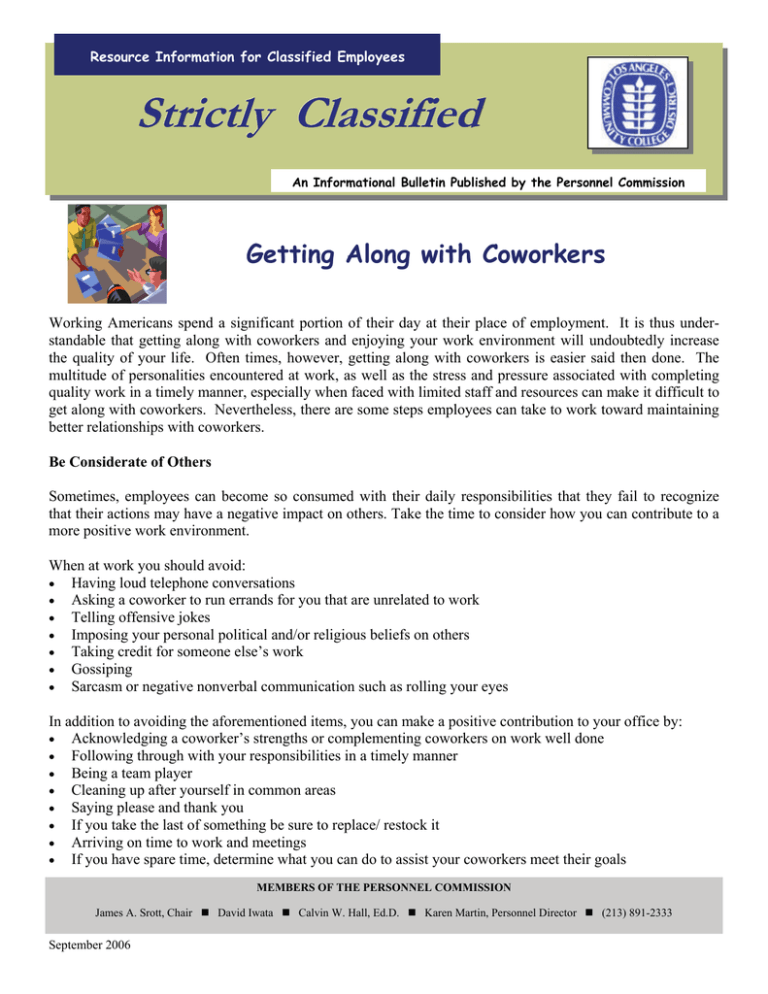
Resource Information for Classified Employees Strictly Classified An Informational Bulletin Published by the Personnel Commission Getting Along with Coworkers Working Americans spend a significant portion of their day at their place of employment. It is thus understandable that getting along with coworkers and enjoying your work environment will undoubtedly increase the quality of your life. Often times, however, getting along with coworkers is easier said then done. The multitude of personalities encountered at work, as well as the stress and pressure associated with completing quality work in a timely manner, especially when faced with limited staff and resources can make it difficult to get along with coworkers. Nevertheless, there are some steps employees can take to work toward maintaining better relationships with coworkers. Be Considerate of Others Sometimes, employees can become so consumed with their daily responsibilities that they fail to recognize that their actions may have a negative impact on others. Take the time to consider how you can contribute to a more positive work environment. When at work you should avoid: • Having loud telephone conversations • Asking a coworker to run errands for you that are unrelated to work • Telling offensive jokes • Imposing your personal political and/or religious beliefs on others • Taking credit for someone else’s work • Gossiping • Sarcasm or negative nonverbal communication such as rolling your eyes In addition to avoiding the aforementioned items, you can make a positive contribution to your office by: • Acknowledging a coworker’s strengths or complementing coworkers on work well done • Following through with your responsibilities in a timely manner • Being a team player • Cleaning up after yourself in common areas • Saying please and thank you • If you take the last of something be sure to replace/ restock it • Arriving on time to work and meetings • If you have spare time, determine what you can do to assist your coworkers meet their goals MEMBERS OF THE PERSONNEL COMMISSION James A. Srott, Chair September 2006 David Iwata Calvin W. Hall, Ed.D. Karen Martin, Personnel Director (213) 891-2333 Dealing with Difficult Coworkers Throughout the course of your career it is not unusual to encounter a difficult person to work with. This person may have exhibited one or more of the following behaviors: • Attacks you personally or undermines your contributions to the workplace • Regularly fails to follow through with their responsibilities • Overly critical • Attempts to compete with you • Complains regularly about their work situation While initially it may seem easier to ignore difficult employees, ultimately their behavior will take its toll. Often times if left unaddressed, the situation will worsen. This can impact your ability to effectively complete the tasks you are assigned, and furthermore it will add unnecessary stress and tension to your workplace. Consider the following tips for dealing with difficult coworkers: • Determine what your role is in the situation. Are you contributing to the problem? Are you overreacting? Are others having similar issues with the same employee? • Discuss the situation with a trusted friend or coworker to determine ways to handle the situation • Talk to the difficult coworker in private and calmly address your concerns • Determine if changes have been made following your private discussion with the coworker • If the coworker’s behavior persists, involve your supervisor • If you have taken all of the recommended steps and the problem continues, limit your contact with the difficult coworker Conclusion Although you will undoubtedly encounter challenges at work, how you choose to respond to those challenges will determine your reputation at work and your level of satisfaction with your employment. Building and maintaining cordial relationships with your coworkers will greatly improve your work environment. Furthermore, it will earn you a reputation as being easy to work with and making positive contributions to office morale.
